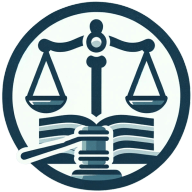How is Client Education Critical to the Success of a Case?
Client education plays a pivotal role in the success of legal cases across various practice areas. This article delves into the critical aspects of client education, drawing on insights from seasoned legal experts. From preparing clients for emotional challenges to explaining complex regulatory frameworks, discover how effective client education can significantly impact case outcomes.
- Prepare Clients for Emotional Challenges in Lawsuits
- Educate on Complex Healthcare Regulatory Frameworks
- Explain Long-Term Consequences of Criminal Charges
- Emphasize Importance of Consistent Medical Treatment
- Demonstrate Risks of Client Testimony
- Teach Legal Standards in Custody Modifications
- Illustrate Value of Patience in Settlements
Prepare Clients for Emotional Challenges in Lawsuits
In a Title IX case, my client didn't understand how emotionally and procedurally difficult these lawsuits could be, especially when taking on a large university. I carefully explained the evidentiary burdens, the potential tactics used by defense counsel, and the public nature of certain court proceedings. I also walked them through their rights under federal law and helped them build a support system. Because they were emotionally and mentally prepared, they stayed strong through depositions and trial—and we prevailed. Educating clients in trauma-informed ways is vital in these cases.

Educate on Complex Healthcare Regulatory Frameworks
In advising our healthcare provider clients at Holt Law, there was a case where client education was absolutely critical: guiding a large physician group through the legal intricacies of a proposed co-management agreement with a hospital that had significant implications under the Stark Law and Anti-Kickback Statute. The business arrangement was promising for the group, but the regulatory framework governing physician-hospital financial relationships is incredibly complex, with strict requirements around fair market value, commercial reasonableness, and documentation that went far beyond the physicians' operational expertise.
Our approach wasn't just to tell them what they couldn't do, but to educate them thoroughly on the why behind the regulations - explaining the policy rationale to help them internalize the risks - and using clear, real-world examples directly relevant to their specific agreement structure and operational dynamics. We broke down the complex requirements into digestible components, provided checklists for ongoing compliance post-execution, and engaged in iterative discussions, ensuring they understood not just the final legal structure but the day-to-day behaviors and documentation needed to maintain compliance.
This deep level of education empowered them to make informed business decisions within the legal guardrails, ultimately ensuring the success and legal defensibility of the valuable partnership they established.

Explain Long-Term Consequences of Criminal Charges
We had a client who was charged with felony drug possession and was ready to accept a plea deal without understanding the long-term consequences on housing, employment, and immigration. I sat down with them and explained the differences between diversion, deferred adjudication, and a conviction on their record. Once they understood the stakes, they agreed to pursue a treatment-based diversion program instead—which kept their record clean and gave them access to needed resources. That education truly changed the trajectory of their life.

Emphasize Importance of Consistent Medical Treatment
Client education is a cornerstone of winning personal injury cases—because clients are never just bystanders. They're part of the case. Their actions, decisions, and even how they communicate can make or break a claim.
One issue we encounter all the time is gaps in medical treatment. While it's not a legal issue on its face, it can devastate a case. Many clients stop treatment because they're busy or think the pain will pass. But in a legal setting, any interruption becomes a red flag—insurance adjusters seize on it, and juries may start to doubt how serious the injury really is.
I remember one client who stopped treatment after just two weeks. We sat down, and I told him plainly: "If you stop treating, your records weaken. And if your records weaken, so does your case." He got back on track, followed through with care, and we secured a settlement that reflected the true impact of his injuries.
Educating clients isn't optional—it's strategy. And when done right, it protects the client and strengthens the case.

Demonstrate Risks of Client Testimony
During a DUI case, my client wanted to testify without understanding how their statements could be interpreted in court. I used mock questioning and video recordings to show them how they came across and where they could potentially be tripped up. Once they saw the potential harm, they agreed to let me control the narrative through cross-examination and character witnesses instead. The jury never heard from the client directly—and we secured a not guilty verdict.

Teach Legal Standards in Custody Modifications
In a complex custody modification case, my client initially believed that simply alleging their co-parent was "unstable" would be enough to change the arrangement. I spent several sessions walking them through the legal standards—specifically, what constitutes a substantial change in circumstances and what a court considers to be in the child's best interest. By helping them understand how evidence, documentation, and courtroom perception play into the judge's decision, we were able to gather and present a more strategic and focused case that ultimately led to a favorable outcome.

Illustrate Value of Patience in Settlements
In a slip-and-fall case, my client was frustrated that their medical bills weren't being reimbursed quickly and considered taking a lowball settlement. I walked them through the litigation process, explained how damages are calculated, and why early offers are often strategically low. By showing them comparable case outcomes and the timeline of similar claims, they agreed to hold out. That patience resulted in a settlement more than triple the original offer.


